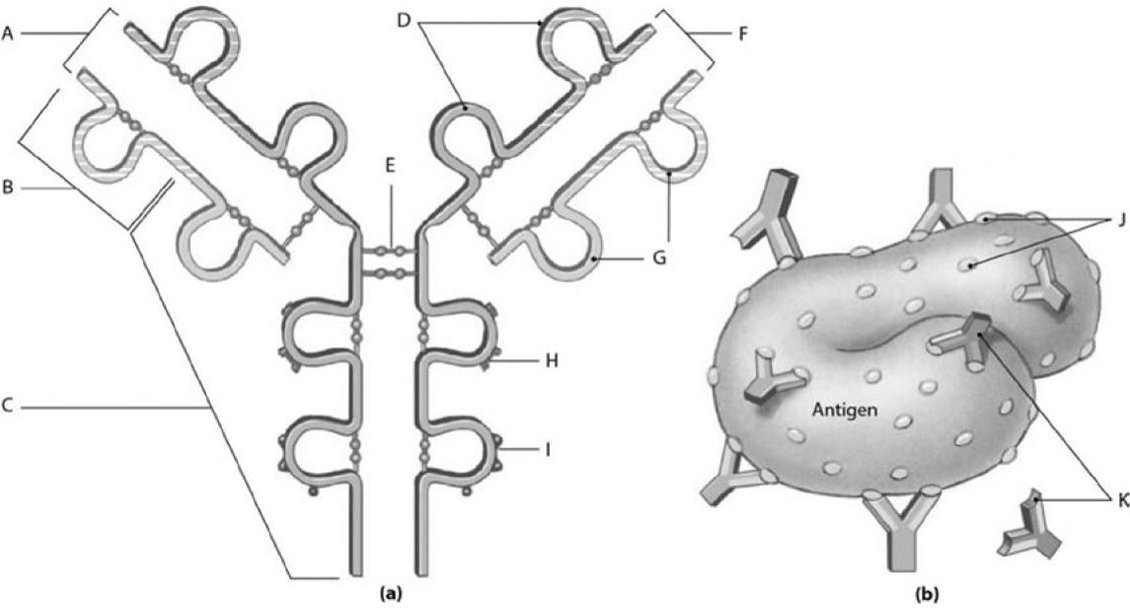IgG antibodies

A) are found in glandular secretions.
B) bind antigens in the extracellular fluid to B cells.
C) stimulate the release of histamine and other inflammatory chemicals.
D) are the first antibody type secreted, following initial exposure to an antigen.
E) can also cross the placenta and provide passive immunity to the fetus.
E) can also cross the placenta and provide passive immunity to the fetus.
You might also like to view...
Glucocorticoids have which of the following effects on general peripheral tissues?
A) They increase the conversion of amino acids to pyruvate. B) They increase gluconeogenesis. C) They increase glycogenolysis. D) All of the answers are correct. E) None of the answers is correct.
All vertebrae, except the sacrum and coccyx, have a central opening called the:
a. spinous process b. vertebral foramen c. dens d. transverse process
A cell uses centrioles in the process of
A. protein synthesis. B. RNA replication. C. cell division. D. energy generation. E. nuclear centering.
Which statement correctly compares chromatin to chromosomes?
A. Chromatin is loosely arranged DNA in the cell's nucleus while the cell is dividing while chromosomes are tight compact bundles of DNA present while the cell is not dividing. B. Chromatin is loosely arranged DNA in the cell's nucleus while the cell is not dividing while chromosomes are tight compact bundles of DNA present during cell division. C. Chromatin is tightly packed DNA in the cell's nucleus while the cell is not dividing while chromosomes are loosely arranged bundles of DNA present during cell division. D. Chromatin is tightly packed DNA in the cell's nucleus while the cell is not dividing while chromosomes are also tight compact bundles of DNA present during cell division.